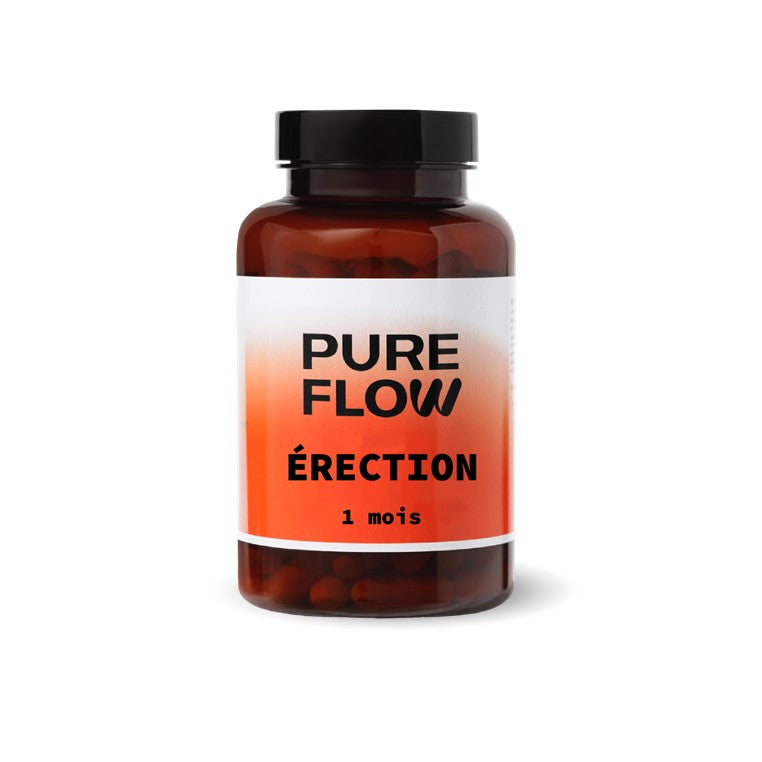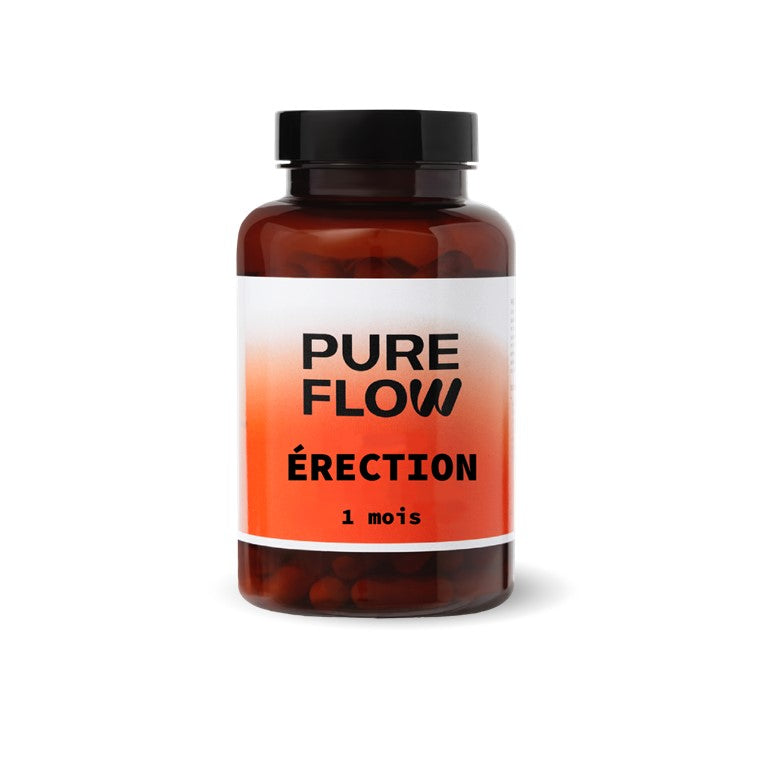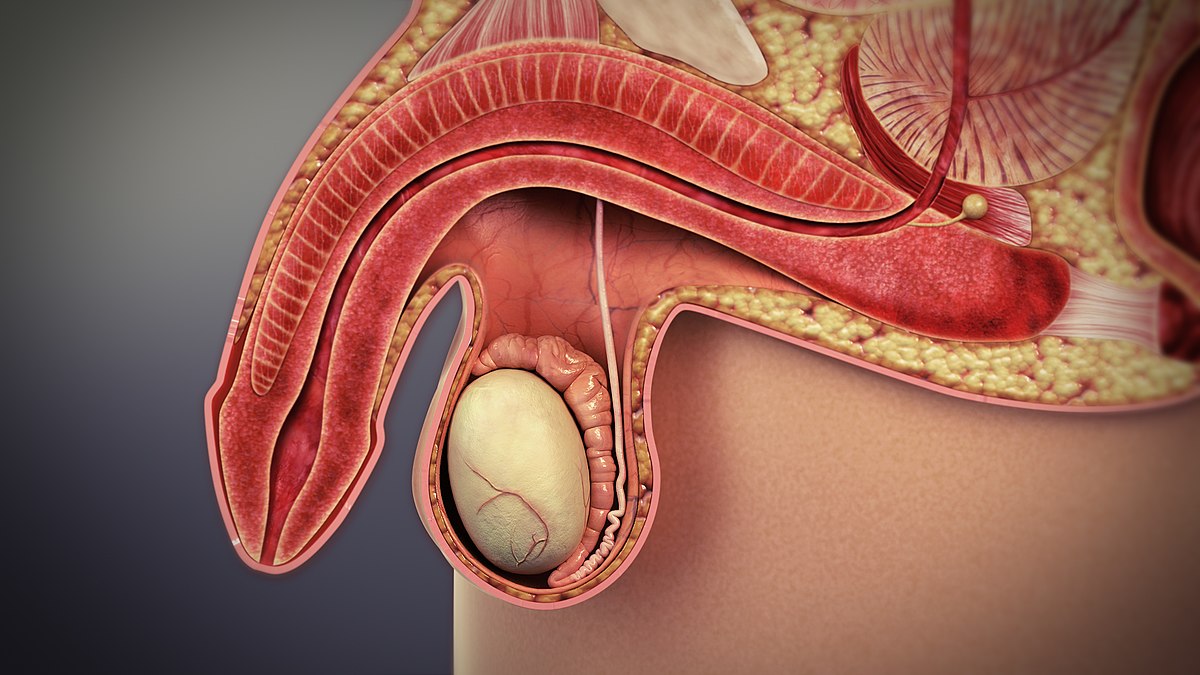Introduction
The erection, much more than a simple component of male sexuality, is a complex and multifaceted barometer of a man's overall health . This phenomenon, combining physiological and psychological processes, offers insight into general health and psychological well-being. In this article, we will not only examine the mechanisms and types of erections but also address common associated disorders. Additionally, we will provide practical tips for maintaining and improving erectile health.
It is important to understand how an erection works because it affects both sexual pleasure, perception of masculinity and self-confidence.
Erection Basics: Understanding the Process
Anatomy and Physiology of Erection
Erection is a complex process that begins with a flow of blood to the penis , made possible by a well-coordinated network involving the central nervous system and the vascular system . The penis, made up of two cylindrical structures called corpora cavernosa , fills with blood when stimulated, leading to an increase in size and rigidity. This process is regulated by nerve and hormonal signals, which are triggered by visual, tactile, auditory, olfactory or imaginative stimuli . The complexity of this mechanism highlights the importance of cardiovascular and neurological health in erectile capacity.
Psychological Factors Influencing Erection
Psychological factors play just as crucial a role as physical aspects in the erectile process. Emotions such as anxiety, stress, depression , or even low self-esteem can significantly influence the ability to achieve and maintain an erection. A positive mindset , good mental health, and effective communication with the sexual partner are essential to promoting a healthy erectile response. Psychological problems can often hinder the erectile process , highlighting the importance of a holistic approach that takes into account both body and mind.

How to Measure Your Penis: Methods and Tips
Penis size is a common concern for many men. If you want to measure your penis , it is important to do so accurately and reliably. Here are some methods and tips for measuring your penis correctly:
- The penis should be measured in an erect state , otherwise too many factors such as temperature, stress level, and other physiological conditions can influence its size in a flaccid state, thus making measurements less accurate and less representative of its actual size when It is in optimal working order. This whether you have a penis of blood or a penis of flesh.
- Use a soft tape measure : To measure the length of your erect penis, use a soft tape measure. Make sure the tape is long enough to reach from the base of your penis to the tip of the glans.
- Measure the length : Place the tape measure along the top of your penis, pressing lightly on the pubic bone at the base. Gently pull the ribbon to the end of the tassel and record the measurement in centimeters or inches.
- Measure the girth : To measure the girth of your penis, wrap the measuring tape around the thickest part of your erect penis. Tighten the tape so you get an accurate measurement, but be careful not to tighten it too tightly.
- Take multiple measurements : To get a more accurate measurement, it is recommended to take multiple measurements at different times. Penis size may vary slightly depending on arousal, temperature and other factors. By taking multiple measurements, you can get a more reliable average.
It is important to note that penis size can vary from man to man and there is no "normal" or "ideal" size. Sexual satisfaction does not only depend on penis size, but also on many other factors such as sexual skills, emotional intimacy and communication with the partner.
If you are concerned about the size of your penis and it is affecting your confidence or well-being, it may be helpful to speak to a healthcare professional or sexologist. They can provide you with additional advice and information to help you feel more comfortable with your body and sexuality.
Different Types of Erections and Their Meanings
Morning Erection: Sign of Erectile Health
Morning erections, also known as nocturnal penile tumescence, are a common phenomenon among men of all ages. These erections usually occur during REM sleep cycles and are not directly related to sexual arousal. They are considered a sign of the physical and functional health of the erectile system. Prolonged absence of morning erections may be an indicator of underlying health problems , such as vascular or neurological disorders, and should prompt medical consultation.
Spontaneous Erections and Their Importance
Spontaneous erections , which occur without conscious sexual stimulation, are another key indicator of erectile health. These erections can occur at any time and are often the result of the body's involuntary responses to various internal or external stimuli. They play a vital role in maintaining the health and function of erectile tissues, ensuring regular oxygenation and preserving tissue elasticity. Like morning erections, a decrease or absence of these spontaneous erections may suggest health problems and require medical evaluation.
Soft Erections
A soft erection , also known as mild erectile dysfunction, is a common occurrence among some men. Soft erections are characterized by difficulty maintaining an erection firm enough for satisfactory sexual activity. The causes of soft erections can be varied, from stress and anxiety to health conditions such as high blood pressure or diabetes . It's important to understand that soft erections are not necessarily permanent and can often be treated with lifestyle changes, medications, or specific therapies. It is recommended to consult a health professional to obtain an accurate diagnosis and appropriate advice.
Erection Problems and Disorders
Erectile Dysfunction: Causes and Consequences
Erectile dysfunction (ED) is a complex and multifactorial condition, which can affect men of all ages. It is characterized by persistent difficulty obtaining or maintaining an erection adequate for satisfactory sexual activity. The causes of ED can be varied, including physical factors such as cardiovascular disease, diabetes , hypertension, or neurological factors. Psychological causes, such as performance anxiety, stress, depression, or relationship problems, also play an important role. ED can have a significant impact on self-confidence, quality of life, and intimate relationships, making proper diagnosis and treatment essential.
Ejaculation Without Erection: Understanding This Phenomenon
Ejaculation without erection is a relatively unknown but important phenomenon in the spectrum of male sexual disorders. This disorder can be caused by hormonal imbalances, nerve damage, psychological disorders, or certain medical conditions. Although less common than erectile dysfunction, this condition can be just as disruptive, affecting self-confidence and sexual satisfaction. It is crucial to see a healthcare professional for a complete evaluation, as this disorder can sometimes be an indicator of more serious health problems.

Maintain Good Erectile Health
Lifestyle and Erectile Health
A healthy lifestyle plays a crucial role in maintaining erectile health. This includes not only a balanced diet rich in fruits, vegetables, whole grains and lean proteins, but also regular physical activity which helps maintain healthy blood flow and reduce the risk of cardiovascular disease. In addition, managing stress through techniques such as meditation, yoga or therapy, as well as avoiding harmful substances such as smoking and excessive alcohol consumption, are fundamental to maintaining optimal erectile function.
Importance of Communication and Active Sexual Life
Open communication with the partner and maintaining an active sex life are essential for healthy erectile health. Openly discussing preferences, concerns, and desires can strengthen the relationship and improve the quality of intimacy. Additionally, regular sexual activity helps maintain erectile function and may even reduce the risk of erectile dysfunction in the long term.

Drug Treatments: Focus on Viagra
Mechanism of Action and Use of Viagra
Viagra , whose active ingredient is sildenafil, is one of the most common and effective treatments for erectile dysfunction. It works by inhibiting a specific enzyme, which allows for increased blood flow to the penis during sexual stimulation, thereby facilitating an erection. It is crucial to follow medical recommendations for its use, taking into account individual medical conditions and potential side effects.
Precautions and Side Effects
Before starting treatment with Viagra, it is imperative to consult a doctor. It is important to discuss medical history, current medications, and health conditions because Viagra may interact with certain medications and is not recommended for certain medical conditions. Common side effects include headache, flushing, and digestive upset, but more serious effects, although rare, may occur.

Natural Treatments for a Strong Erection
Dietary Changes and Supplements
Natural treatments and changes in diet can play a significant role in improving erectile health. A diet rich in antioxidants, vitamins and minerals is beneficial. Herbal supplements, such as tribulus terrestris , rhodiola or ginseng, can also help, although it is important to use them under medical supervision to avoid interactions with other treatments.
Physical Exercises and Relaxation Techniques
Kegel exercises, which strengthen the pelvic floor muscles, can improve erectile function. Relaxation techniques like yoga and meditation help reduce stress, a factor known to negatively affect erectile health. Adopting a regular routine of physical exercise and relaxation can therefore have significant benefits on sexual health.
Conclusion
Understanding and managing erectile health is crucial to overall well-being and sexual satisfaction. A holistic approach, integrating physical, psychological and lifestyle aspects, is essential. It is essential to recognize the importance of erectile health as part of overall health and not hesitate to seek medical and psychological support when necessary.









